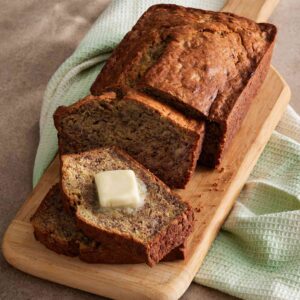Table of Contents
Bread is a staple food in many cultures around the world. It is versatile, easy to prepare, and delicious. But is it healthy? In this article, we will explore the many health benefits of bread and share some delicious and nutritious bread options.
What Makes Healthy Bread?
Healthy bread is one that is made with whole grains, seeds, and nuts. It is often high in fiber, protein, and other essential nutrients. Healthy bread can help you maintain a healthy weight, reduce the risk of chronic diseases, and improve digestive health.
Nutritional Content of Healthy Bread
The nutritional content of bread can vary depending on the type of bread, its ingredients, and whether it’s homemade or commercially produced. Here’s a general overview of the nutritional components of a typical slice (about 25-30 grams) of white bread and whole wheat bread:
White Bread (1 slice, approximately 25-30 grams)
- Calories: 60-80 calories
- Carbohydrates: 12-15 grams
- Protein: 1.5-2 grams
- Dietary Fiber: 0.5-1 gram
- Sugars: 1-2 grams
- Fat: 0.5-1 gram
- Sodium: 120-200 milligrams
- Vitamins and Minerals: White bread is often enriched with vitamins and minerals, including thiamine (vitamin B1), riboflavin (vitamin B2), niacin (vitamin B3), and iron.
Whole Wheat Bread (1 slice, approximately 25-30 grams)
- Calories: 60-80 calories
- Carbohydrates: 12-15 grams
- Protein: 2-3 grams
- Dietary Fiber: 2-3 grams
- Sugars: 1-2 grams
- Fat: 0.5-1 gram
- Sodium: 120-200 milligrams
- Vitamins and Minerals: Whole wheat bread is a good source of dietary fiber, and it also contains vitamins and minerals like thiamine, riboflavin, niacin, folate, magnesium, and zinc.
Please note that these values are approximate and can vary depending on the brand and specific recipe of bread. Specialty bread varieties, such as multigrain, rye, or sourdough, may have different nutritional profiles based on their ingredients.
When choosing bread, consider opting for whole wheat or whole grain varieties over white bread because they are typically higher in dietary fiber and provide more essential nutrients. Additionally, be mindful of portion sizes, as the nutritional content can add up if you consume multiple slices in one sitting.
Health Benefits of Bread
Bread, particularly whole grain and whole wheat bread, can offer several health benefits when consumed as part of a balanced diet. Here are some of the health benefits associated with eating bread:
- Good Source of Complex Carbohydrates: Bread is a significant source of complex carbohydrates, which are the body’s primary source of energy. It provides sustained energy throughout the day and can help maintain stable blood sugar levels.
- Dietary Fiber: Whole grain and whole wheat bread are rich in dietary fiber, which is essential for digestive health. Fiber helps regulate bowel movements, prevents constipation, and supports a healthy gut microbiome.
- Nutrient-Rich: Whole grain bread is a good source of essential nutrients, including B vitamins (such as thiamine, riboflavin, and niacin), folate, minerals (such as magnesium, selenium, and zinc), and antioxidants. These nutrients play vital roles in metabolism, immune function, and overall health.
- Heart Health: Consuming whole-grain bread may help lower the risk of heart disease. The dietary fiber, particularly soluble fiber, in whole grains can help reduce LDL (“bad”) cholesterol levels and lower the risk of hypertension, which is are risk factor for heart disease.
- Weight Management: Whole grain bread can contribute to a feeling of fullness due to its fiber content. This can help control appetite and support weight management by reducing overall calorie intake.
Delicious and Nutritious Healthy Bread Options
Here are some delicious and nutritious bread options to try:
- Whole-Grain Bread: Made with whole grains such as wheat, oats, or barley.
- Sourdough Bread: Made with a sourdough starter instead of yeast.
- Sprouted Grain Bread: Made with sprouted grains such as wheat or barley.
- Seed Bread: Made with seeds such as sunflower seeds or pumpkin seeds.
Conclusion
In conclusion, healthy bread can be a delicious and nutritious addition to your diet. Whether you are looking to improve your digestive health, reduce the risk of chronic diseases, or improve your heart health, healthy bread is an excellent choice. So why not try one of these delicious bread options today?
Call to action
If you enjoyed this article and want to learn more about healthy eating, be sure to check out our other articles on nutrition and wellness. Follow us to see more useful information, as well as to give us more motivation to update more useful information for you.





